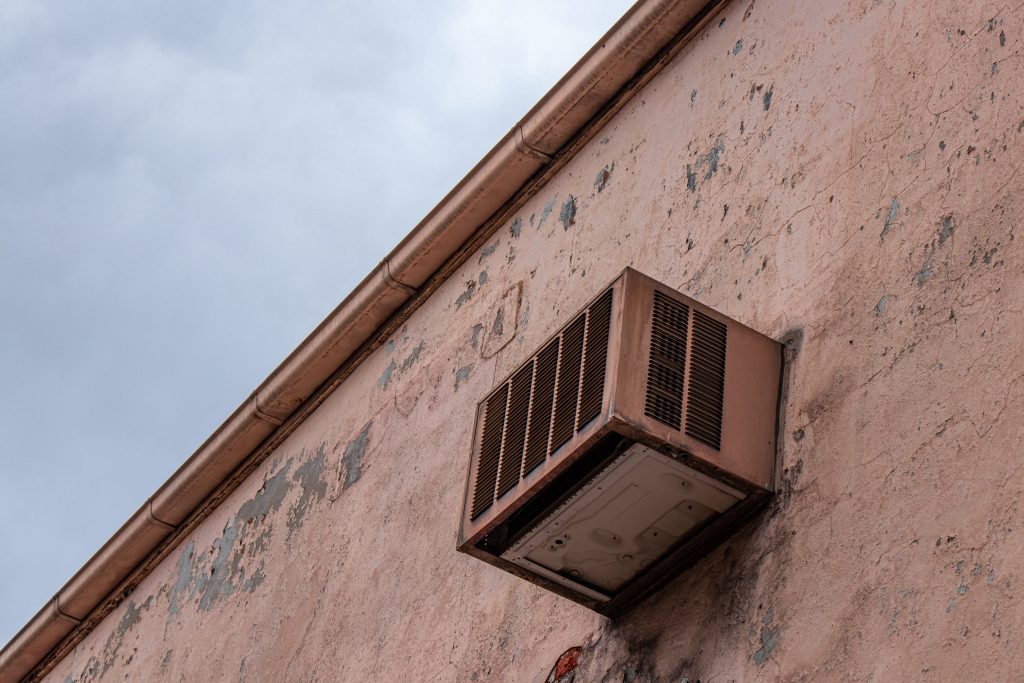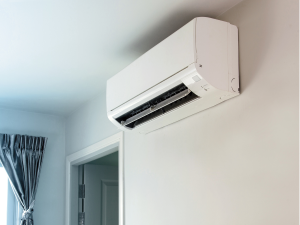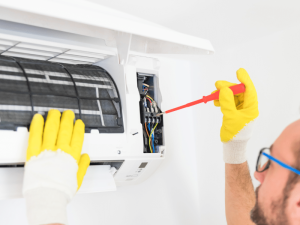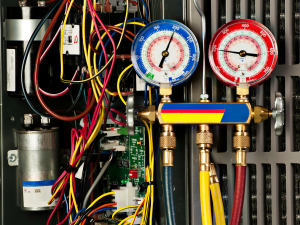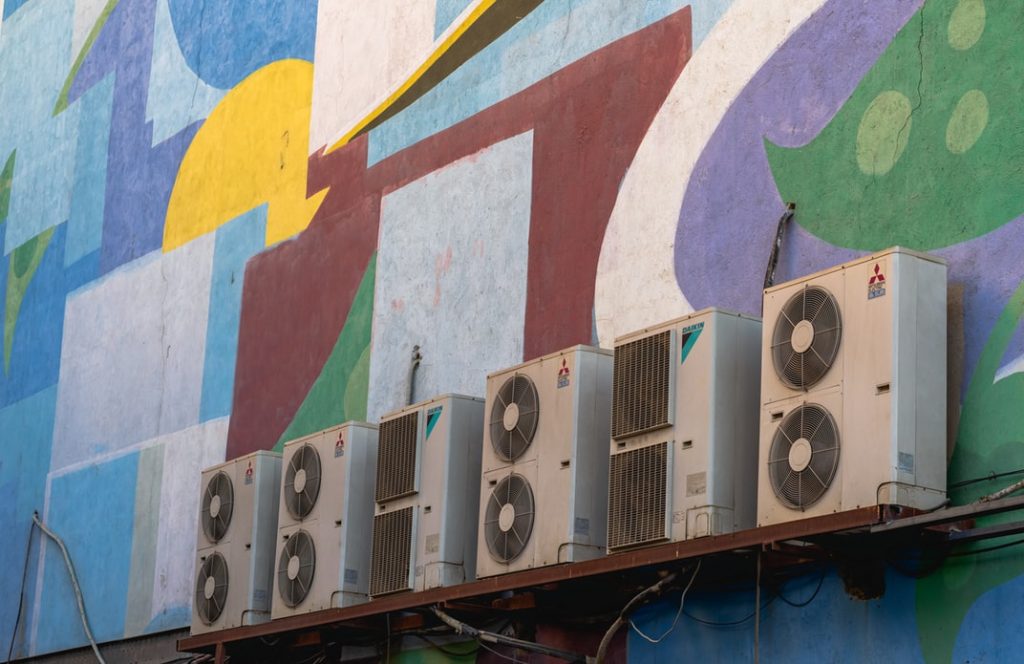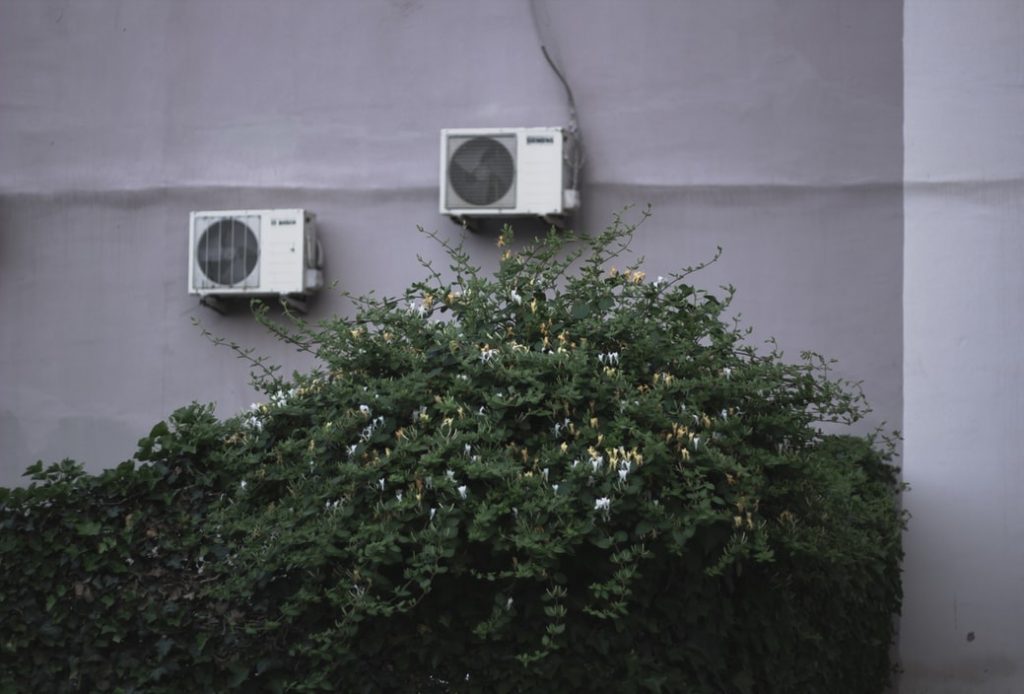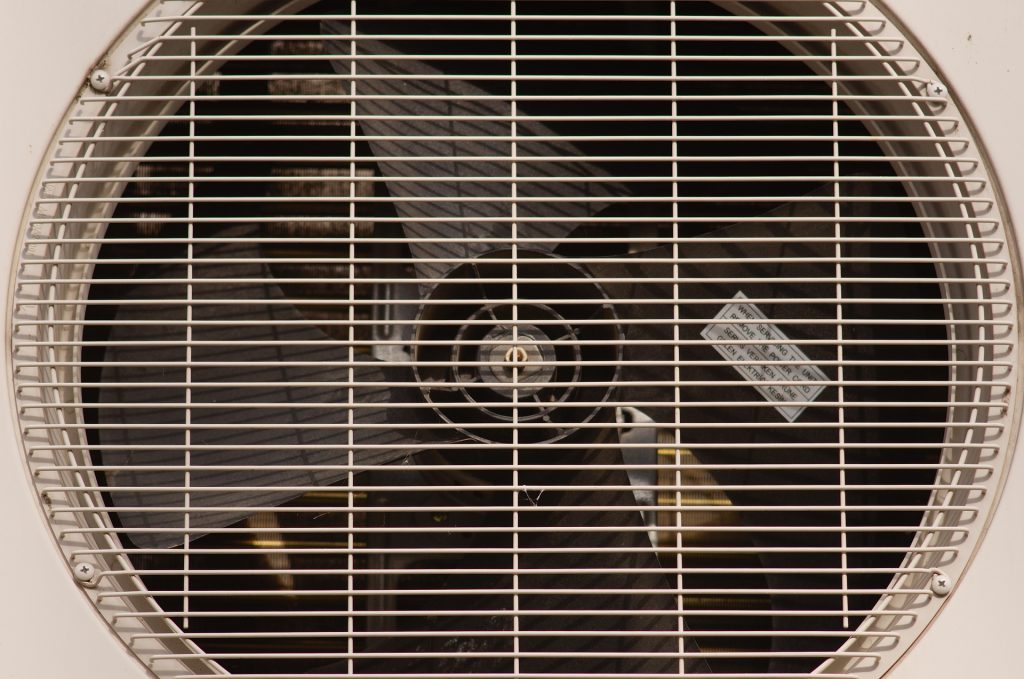AC troubleshooting doesn’t have to be complicated. In this post, we’ll give you some tips for troubleshooting your AC unit. In some cases, you’ll be able to take your findings and repair the unit yourself. Even when you do need to call an expert, however, you’ll at least be able to better communicate the issue, saving you time and money.
Let’s dive in!
HVAC Troubleshooting: The Basics
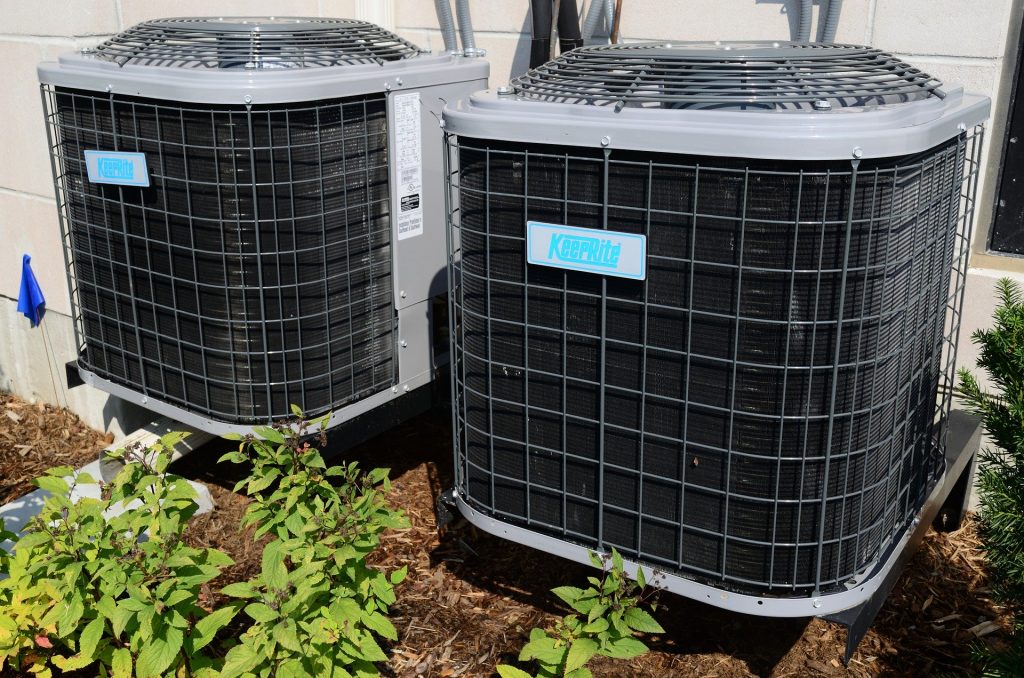
Before we look at common AC problems to help you troubleshoot from that angle, let’s cover some basics.
Air conditioners work by sucking up the warm air inside your home. This warm air flows over pipes that contain coolants (known as refrigerants). It then flows over a heating element that adjusts the air’s temperature depending on your thermostat settings. If you’re using the air conditioner for cooling, the air will flow back into your home cooler than it originally was.
As for the heat, it gets dissipated outside through fans.
This is, of course, a very simplified explanation of how air conditioners work. We’re not trying to turn you into an expert on the science behind air conditioners but rather give you some context for when we upcoming sections.
If you do want a more detailed explanation, check out the video below.
Important: Disconnect Electricity During Air Conditioner Troubleshooting
A central air conditioner uses an average of 3,500 W of electricity hourly. That’s more than enough to kill you if you don’t exercise proper precautions when troubleshooting.
To eliminate this risk, make sure you disconnect your unit’s electrical supply before opening it up for inspection. You’ll need to do this either at your home’s circuit breaker or by disconnecting it from the outlet if that applies.
This simple precaution shouldn’t take you more than 10 minutes but it makes HVAC troubleshooting very safe.
If you do feel uncertain about troubleshooting your AC unit yourself, give us a call. We are the most trusted specialists for air conditioning repair in Phoenix, with more than 30 years of experience.
AC Troubleshooting: Common AC Problems
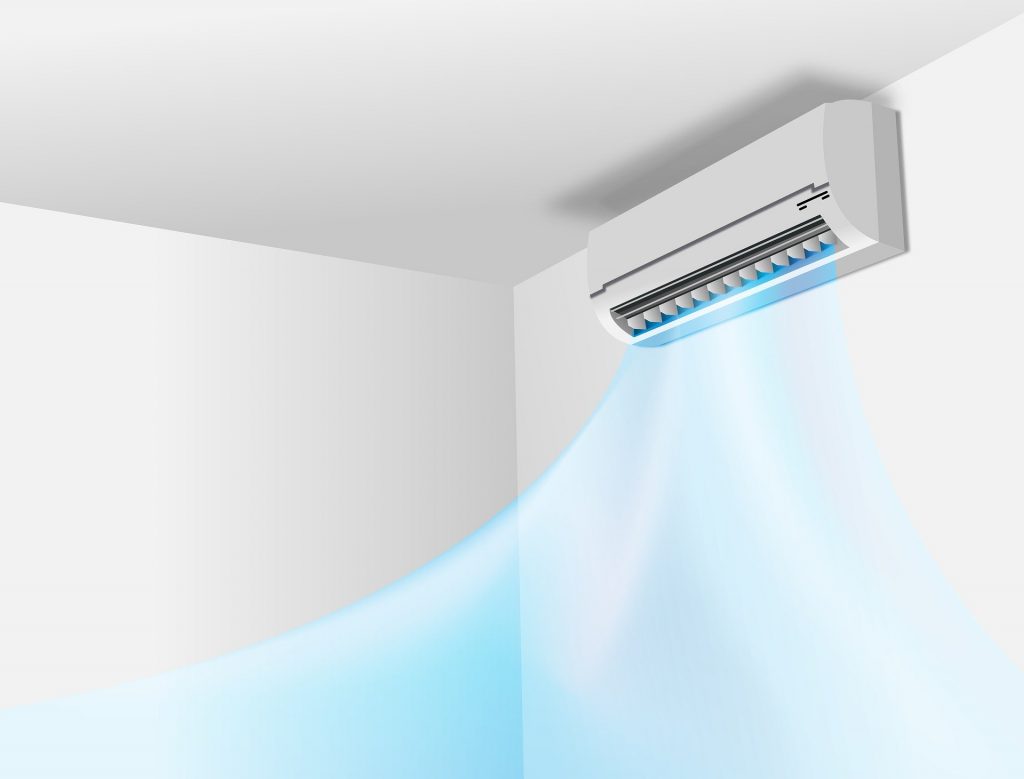
Let’s take a look at each problem based on the symptoms it produces since those symptoms are likely what’s prompted you to look into troubleshooting the unit in the first place.
Improper Cooling
One of the most common air conditioner problems we hear about at American Home Water and Air is a lack of proper cooling. As we discussed in great detail here, an air conditioner that does not cool properly can be the result of many mechanical failures.
We invite you to check out that aforementioned article for a step-by-step diagnosis of an air conditioner that’s not cooling properly but we’ll summarize the potential issues here.
- AC not blowing at all? You are likely dealing with an electrical or thermostat issue.
- AC blowing air that’s not cool? You likely have one of these issues:
- a refrigerant leak (almost certainly the case if you’re also noticing a hissing sound)
- an improperly-adjusted/malfunctioning thermostat
- an overactive humidifier
- an improperly-sized air conditioning unit
- condenser coils in need of cleaning
- AC blowing cool air intermittently? Intermittent air conditioner function is usually the result of a thermostat problem, electrical malfunction, or damaged filter.
Weird Noises
Another common issue that might prompt air conditioner troubleshooting on your part is an odd sound coming from the unit. We’ve also written a very in-depth piece about this issue (check it out here) but, once again, we’ll summarize the key points.
Before you check for either of these issues, though, check to see if your air conditioner’s isolation feet have been misplaced. This can cause a rattling noise as the bottom of the unit vibrates against whatever surface lies underneath it.
- AC making a humming noise? You are likely dealing with a loose component or a buildup of debris inside the unit. If the air conditioner isn’t turning on entirely, you’re likely dealing with an electrical issue; the contractor relay switch is known to make noise when it’s not functioning properly.
- AC making a buzzing noise? You may be experiencing a refrigerant leak. The coolant leak will cause components in the air conditioner to freeze, which in turn produces a rattling or buzzing sound.
Leaking
In case you haven’t noticed by now, we’ve been quite busy writing super-specific articles about common home AC problems. While we encourage you to check out our piece on leaking air conditioners, here are the basic troubleshooting tips.
- AC leaking water? Your condensate drain line is the likely culprit. This line can get clogged, which causes a buildup of condensation inside the unit. The drain pan eventually overflows, causing your leak.
- AC leaking refrigerant? If you notice a loud hissing noise in conjunction with inadequate cooling, you are likely experiencing a refrigerant leak. This requires immediate professional attention as refrigerant leaks can be quite dangerous to you and your family.
Smelly Air
Another one of the most common AC problems in houses is air that smells off. This (which people often call “dirty sock syndrome”) is a sure sign that something is awry within the unit. Common culprits to look out for when troubleshooting your AC unit include:
- Does the air smell like a dirty gym sock? You are likely dealing with a buildup of mold and bacteria. You will need to clean the evaporator coil thoroughly using a solution of bleach and water. Be sure to wear proper protective gear (gloves, mask, etc) and wash your hands thoroughly after you’ve finished cleaning.
- Does the air smell like mildew? If yes, you’ll also need to clean the coils thoroughly.
- Does the air smell like Freon? While Freon (which is often found in air conditioners made prior to 2010) is largely odorless, it can have an ether-like, chemical-ly smell that’s mildly sweet. If you notice this, you’re experiencing a refrigerant leak; refer to our section above on this.
- Does the air smell like smoke? You can check our article on “AC Blowing Smoke” to learn about common causes and tips.
What To Do About Common Air Conditioner Problems
Central AC problems often require an expert’s eye for diagnosis and maintenance. At American Home Water and Air, we’ve been providing HVAC repair services to residents of the Phoenix area for more than 30 years.
Hopefully, the troubleshooting tips we’ve mentioned above have helped you narrow your search for the cause of your AC woes. If you’re not sure what to do next and live in the Phoenix area, give us a call and we’ll be happy to lend a hand! We have the most comprehensive 40-point checkup in Phoenix.


